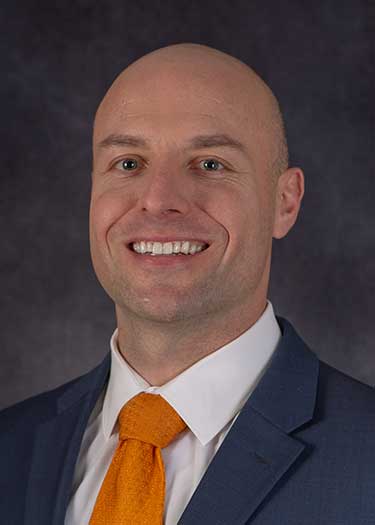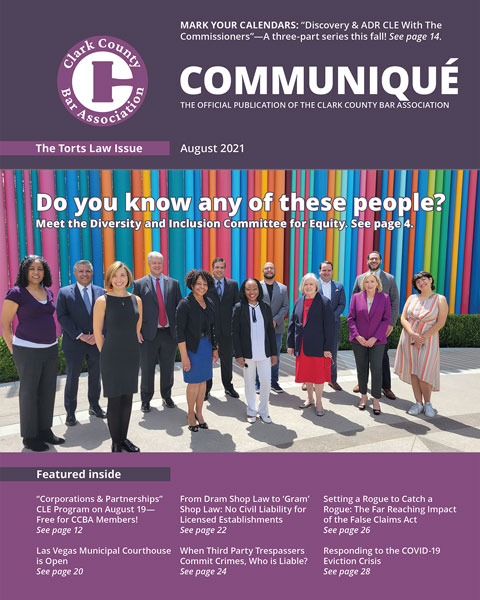Nevada remains in a small minority of states that do not recognize dram shop liability, at least for establishments licensed to sell alcohol (the term “dram shop” dates back to when alcohol was served by the “dram”, which is one-eighth of an ounce). Many states have passed dram shop laws that now hold establishments liable if they serve alcohol to underage or intoxicated persons who then injure a third-person while intoxicated.
However, the Supreme Court of Nevada has repeatedly refused to judicially create a cause of action for dram shop liability where none existed at common law. See Hamm v. Carson City Nugget, Inc., 450 P.2d 358 (Nev. 1969); Snyder v. Viani, 885 P.2d 610 (Nev. 1994) (discussing Hamm and its progeny). The Court reasoned that creating dram shop liability “is the function of the legislative, not the judicial, branch of government.” Hinegardner v. Marcor Resorts, L.P.V., 844 P.2d 800 (Nev. 1992).
As a result, establishments licensed to sell alcohol in Nevada remain immune from civil liability for injuries caused by their patrons’ drunken negligence. NRS 41.1305 expressly provides such immunity to licensed alcohol establishments, but the statute imposes civil liability on any unlicensed person who knowingly serves or sells alcohol to an underage person or who knowingly allows an underage person to consume alcohol on premises controlled by the unlicensed person.
The legislative intent behind NRS 41.1305 was to impose civil liability on social hosts only. See Nevada Assembly Committee Minutes, 5/3/2007. Licensed establishments remain exempt from civil liability because regulatory penalties exist to deter licensed establishments from selling and serving alcohol to minors. Id. Social hosts have no such regulatory deterrence.
Nevada’s new “gram” shop law
Nevada’s dram shop law for alcohol will now apply to cannabis as well. This past legislative session, Nevada became one of the first states to allow cannabis to be consumed in licensed establishments when the 2021 Nevada Legislature passed Assembly Bill 341 (“AB 341”) and Governor Sisolak signed the same into law. Some legal prognosticators have colloquially referred to anticipated laws regulating civil liability in the cannabis industry as “gram shop” laws because, like the “dram” once was for alcohol, a gram is the smallest quantity in which cannabis can be purchased.
The Cannabis Compliance Board (“CCB”) will be tasked with promulgating new regulations for Nevada’s new “gram shop” law, which will likely include stiff penalties for serving cannabis to underage persons. Under the current Nevada Cannabis Compliance Regulations (“NCCR”), cannabis establishments are subject to a Category II regulatory violation for “[f]ailing to verify the age of, or selling or otherwise providing cannabis or cannabis paraphernalia to, a person who is less than 21 years of age.” See NCCR 4.040(1)(a)(3). Category II violations subject cannabis establishments to civil penalties up to $25,000 and a license suspension up to 20 days for the first such violation, civil penalties up to $75,000 and a license suspension up to 30 days for the second such violation, and license revocation for the third such violation. See NCCR 4.040(2)(a).
However, licensed consumption lounges will not need to worry about civil liability for injuries caused by their patrons while under the influence of cannabis consumed in their lounges. AB 341 included a mirror image of NRS 41.1305 for cannabis consumption, which will be added as a new section to Chapter 41 of the Nevada Revised Statutes.
Insurance implications a win for the cannabis industry
The protections afforded to consumption lounges by AB 341 should also help keep insurance premiums reasonable for general liability policies. This is a win for the lobbyists of the cannabis industry who have been advocating for such immunities.
About the author

John J. Savage, Esq. is a shareholder at Holley Driggs. His practice focuses on business litigation and personal injury defense. He also defends clients in CCB and NSBME disciplinary actions, and serves as an arbitrator for the EJDC.

About this article: This article was originally published in the “Torts Law” issue of Communiqué, the official publication of the Clark County Bar Association, (August 2021). See https://clarkcountybar.org/about/member-benefits/communique-2021/communique-august-2021/.
© 2021 Clark County Bar Association (CCBA). All rights reserved. No reproduction of any portion of this issue is allowed without written permission from the publisher. Editorial policy available upon request.
